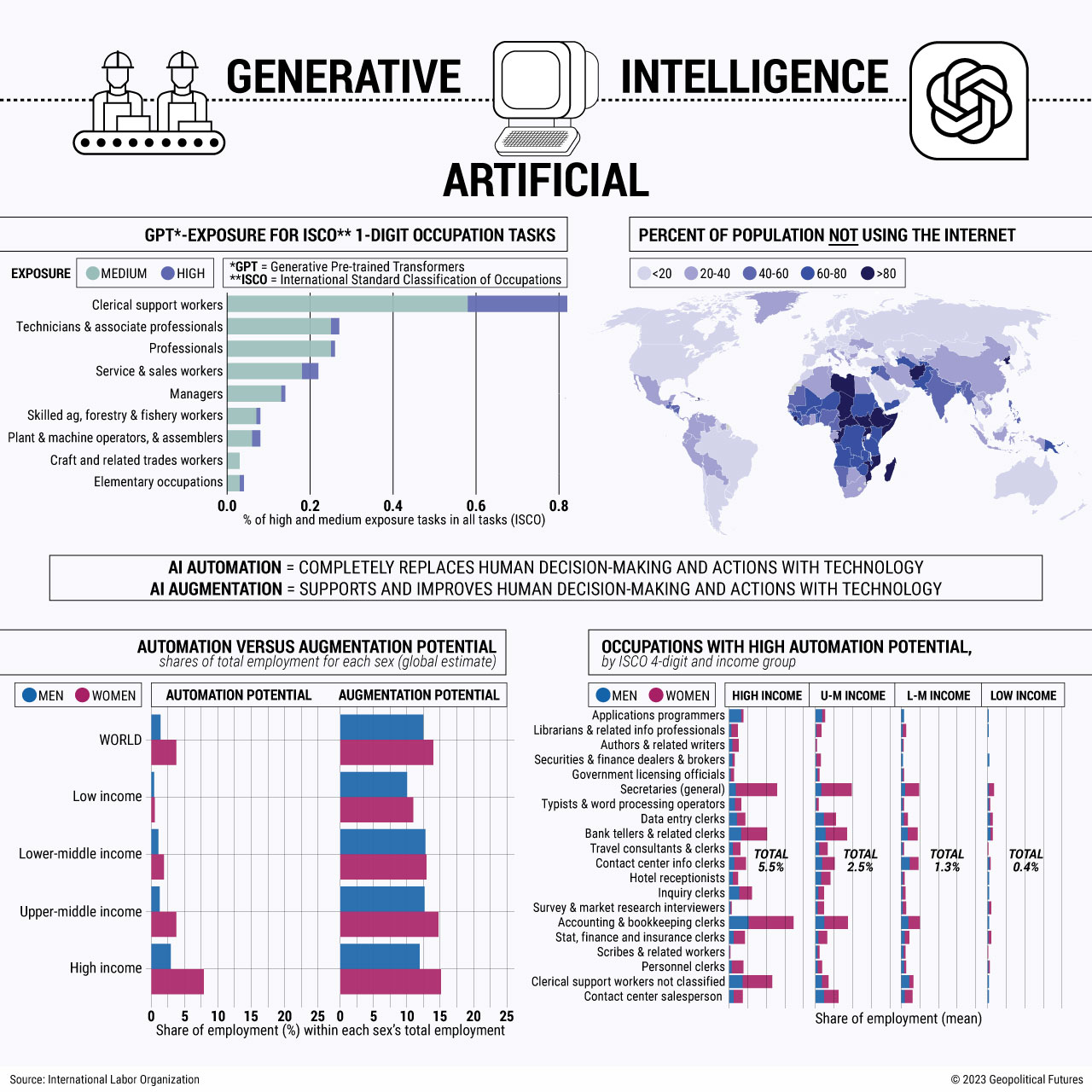Advancements in technology inevitably change the way we work and live, but they affect different segments of society unevenly. The latest breakthrough is generative artificial intelligence – AI capable of producing something new. Whereas the Industrial Revolution transformed manual labor, generative AI is expected to disrupt life for “knowledge workers.”
When it comes to jobs exposed to AI, economists distinguish between automation and augmentation, where the latter describes technology capable of assisting humans as opposed to replacing them. Generative AI excels at (and thus can automate) administrative tasks, data management, record keeping, responding to inquiries, and recording and processing information. These tasks are more prevalent in higher-income countries and are more likely to be done by women. Generative AI’s augmentation effects are more evenly distributed across income levels and gender.




 Special Collection – The Middle East
Special Collection – The Middle East